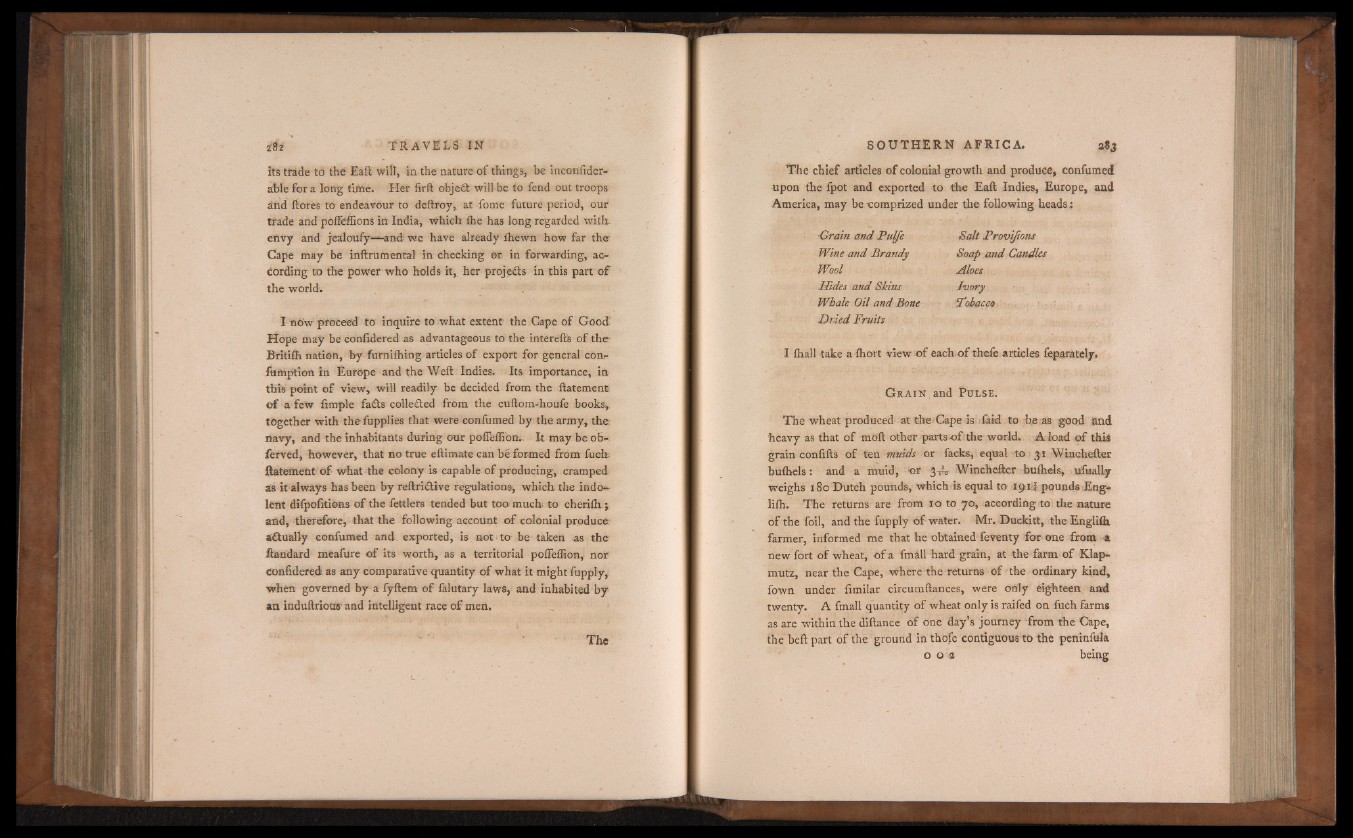
its tfade to the Eaft will, in the nature of things, be inconfider-
able for a long time. Her firft obje£t will be to fend out troops
dild ftores to endeavour to deftroy, at fome future period, our
trade and poffeffions in India, which Ihe has long regarded with.
efivy and jealoufy——and we have already ihewn how far the
Cape may be inftrumental in checking or in forwarding, according
to the power who holds it, her projects in this part of
the world.
I now proceed to inquire to what extent the Cape of Good
Hope may be confidered as advantageous to the interefls of the
Britilh nation, by furnifhing articles of export for general con-
fumption in Europe and the Weft Indies. Its importance, in
this point of view, will readily be decided from the ftatement
of a few firople fails colledted from the cuftom-houfe books,
together with the fupplies that were confumed by the army, the:
navy, and the inhabitants during our pofleflibn.. It may be ob-
ferved, however, that no true eftimate can be formed from fuch.
ftatement of what the colony is capable of producing, cramped
as it always has been by reftriitive regulations, which the indo*-
lent difpofitions of the fettiers tended but too much, to cherilh ;
and, therefore, that the following account of colonial produce
actually confumed and exported, is not to be taken as the
ftandard mCafure of its worth, as a territorial pofleflion, nor
Confidered as any comparative quantity of what it might fupply,
when governed by a fyftem of falutary laws, and inhabited by
an induftrious and intelligent race of men.
The
The chief articles of colonial growth and produce, confumed
upon the fpot and exported to the Eaft Indies, Europe, and
America, may be-comprized under the following heads .:
■Grain and Puyi
Wine and Brandy
Wool
Hides and Skins
Whale Oil and Bone
Dried Fruits
Salt Provifions
Soap and Candles
Aloes
Ivory
Fobacco
I ihall take a ftiort view of each o f thefe articles feparately.
G r a in and P u l s e .
The wheat produced at the Cape is laid to he as good and
heavy as that of moft other parts o f the world. A load o f this
grain confifts of ten muids or facks, equal to 31 Winchefter
buihels: and a muid, or 3 ^ Winchefter buihels, ufually
weighs 180 Dutch pounds, which is equal to 1914 pounds ¡Eng-
lifh. The returns are from 10 to 70, according to the nature
of the foil, and the fupply of water. Mr. Duckitt, the Engliih
farmer, informed me that he obtained feventy for one from a
new fort of wheat, o f a fmall hard grain, at the farm of Klap-
mutz, near the Cape, where the returns of the ordinary kind,
fown under fimilar circumftances, were only eighteen and
twenty. A fmall quantity of wheat only is raifed on fuch farms
as are within the diftance of one day’s journey from the Cape,
the beft part of the ground in thofe contiguous to the peninfiila